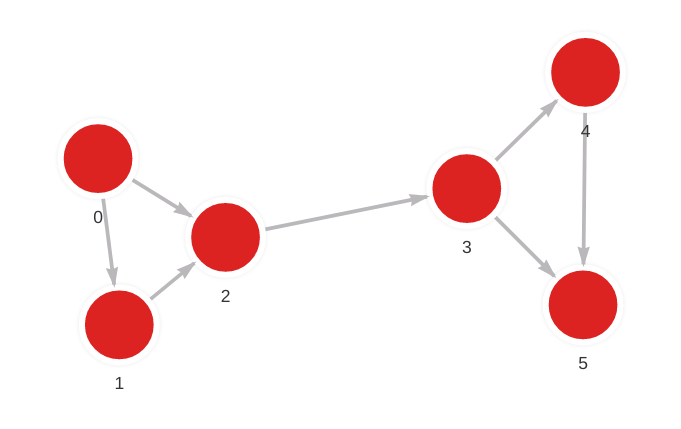conditional_execution
Your queries might require conditional execution logic that can’t be adequately
expressed in Cypher. The do module makes it possible to define complex logic
and use it to control query execution.
| Trait | Value |
|---|---|
| Module type | module |
| Implementation | Python |
| Parallelism | sequential |
Procedures
Using the following procedures to run queries that execute global operations is currently not supported and returns a warning. The operations in question are:
- index creation/deletion
- constraint creation/deletion
- changing the isolation level globally
- setting the storage mode
case(conditionals, else_query, params)
Given a list of condition-query pairs, do.case executes the query associated
with the first condition evaluating to true (or the else query if none are
true) with the given parameters.
Parameters are prefixed with $ like $param_name. For examples, see
here.
Input:
conditionals: List[Any]➡ Variable-length list of condition-query pairs structured as[condition, query, condition, query, …]. Conditions arebooleanand queries arestring.else_query: string (default = "")➡ The query to be executed if no condition evaluates totrue.params: Map (default = NULL)➡ If any of the given queries is parameterized, provide a{param_name: param_value}map to be applied to them.
Output:
value: Map➡ Contains the result record of the executed query. Eachvaluecorresponds to one result record.
Usage:
MATCH (n)
WITH size(collect(n)) as n_nodes
CALL do.case([n_nodes = 0,
"RETURN 'empty' AS graph_status;",
n_nodes = 1,
"RETURN 'one_node' AS graph_status;"],
"RETURN 'multiple nodes' AS graph_status;")
YIELD value
RETURN value.graph_status AS graph_status;
when(condition, if_query, else_query, params)
do.when evaluates the given condition and executes the if query or the
else query depending on whether the condition is satisfied.
Parameters are prefixed with $ like $param_name. For examples, see
here.
Input:
condition: boolean➡ Determines what query to execute.if_query: string➡ The query to be executed if the condition is satisfied.else_query: string (default = "")➡ The query to be executed if the condition isn’t satisfied.params: Map (default = NULL)➡ Ifif_queryorelse_queryare parameterized, provide a{param_name: param_value}map to be applied.
Output:
value: Map➡ Contains the result record of the executed query. Eachvaluecorresponds to one result record.
Usage:
MATCH (n)
WITH size(collect(n)) as n_nodes
CALL do.when(n_nodes = 0,
"RETURN 'empty' AS graph_status;",
"RETURN 'not empty' as graph_status;")
YIELD value
RETURN value.graph_status AS graph_status;
Example
- Step 1: Input graph
- Step 2: Cypher load commands
- Step 3: Running command
- Step 4: Results

MERGE (a:Node {id: 0}) MERGE (b:Node {id: 1}) CREATE (a)-[:RELATION]->(b);
MERGE (a:Node {id: 1}) MERGE (b:Node {id: 2}) CREATE (a)-[:RELATION]->(b);
MERGE (a:Node {id: 2}) MERGE (b:Node {id: 0}) CREATE (a)-[:RELATION]->(b);
MERGE (a:Node {id: 3}) MERGE (b:Node {id: 3}) CREATE (a)-[:RELATION]->(b);
MERGE (a:Node {id: 3}) MERGE (b:Node {id: 4}) CREATE (a)-[:RELATION]->(b);
MERGE (a:Node {id: 3}) MERGE (b:Node {id: 5}) CREATE (a)-[:RELATION]->(b);
MATCH (n:Node)
WITH size(collect(n)) as n_nodes
CALL do.when(n_nodes = 0,
"RETURN 'empty' AS graph_status;",
"RETURN 'not empty' as graph_status;")
YIELD value
RETURN value.graph_status AS graph_status;
┌──────────────┐
│ graph_status │
├──────────────┤
│ not empty │
└──────────────┘
